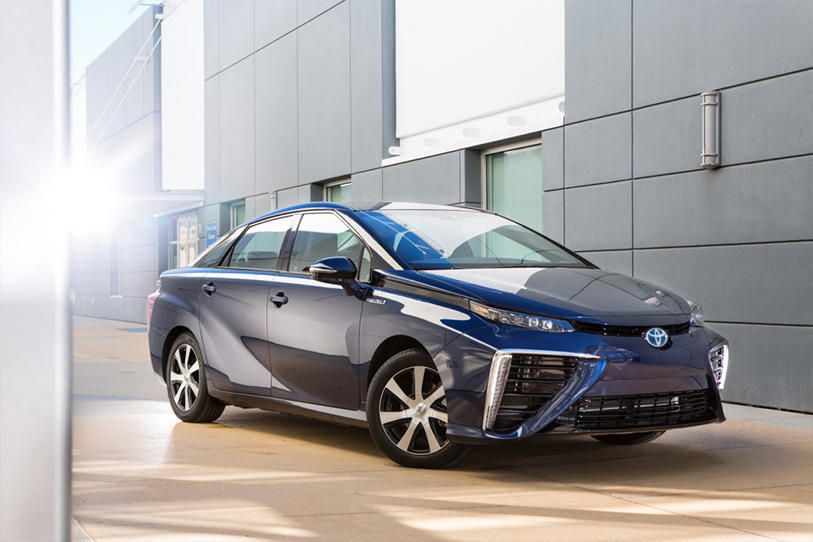Driven: Audi A7 h-tron, the world's first plug-in hydrogen hybrid
I'm guzzling gas and the greens can't touch me
DOWNTOWN Los Angeles may not be the ideal place to test what is arguably the world’s most advanced car. In front of me the traffic is crawling and even in November it’s hot; a haze of exhaust fumes rises from the queue ahead. Not from the Audi I am driving, however: coming from its tailpipe is nothing but a dribble of water.
The Audi A7 Sportback h-tron, which took the LA motor show by storm last week, represents the latest low-emission thinking by car makers, and could mark the beginning of the biggest shake-up of eco-friendly motoring since the arrival of mainstream all-electric cars.
Search for and buy your next car on driving.co.uk
It is a plug-in hydrogen hybrid running on electricity produced by a hydrogen-powered fuel cell supplemented by, for the first time, a battery that can be recharged from the mains. It uses silent electric motors front and rear that provide four-wheel drive, but unlike many pure electric cars it can be driven without range anxiety. Four tanks of hydrogen allow it to go for 342 miles between refills — three times the range of most electric cars. Refuelling takes just three minutes.
Inside, the cabin is silent, and despite being just a concept the car feels almost production-ready. You can toggle between three driving modes — fuel cell only, battery and fuel cell, or just battery — although the car will decide for you in automatic mode, which means it kicks into life on battery power while the fuel cell “warms up”, and then switches to the fuel cell with the battery engaging only when you floor the throttle.
I test this when the traffic clears on Pico Boulevard: hard on the accelerator and it surges forward with “invisible hand” thrust (Audi claims it has a top speed of 130mph and a 0-62mph time of 7.8 seconds). The silent turn of speed attracts some wolf whistles from the pavement.
It is no coincidence that this Audi was unveiled in LA. Once famous for gas-guzzling monsters, the city has become a focus for clean-car technology — like a reformed alcoholic sipping carrot juice. At the show all the talk was of new, cutting-edge green tech. Venture out of town and you see all-electric vehicles such as the Tesla Model S zipping down the Pacific Coast Highway or queuing at the new supercharging stations that have mushroomed overnight. There is even talk of the hydrogen highway — started by Arnold Schwarzenegger and much mocked when he was state governor — being poised for a revival.
It’s why Toyota chose this show to unveil its hydrogen fuel-cell car too. Billed as the world’s first hydrogen-powered production car, the Mirai is a four-seat family vehicle that is likely to go on sale in Britain in small numbers next September, priced around £52,000.
The Mirai, which means “future” in Japanese, has a claimed driving range of 300 miles and can be refuelled in less than five minutes — advantages Toyota says will ensure the success of hydrogen over electric plug-in cars. As with the Audi, the hydrogen is converted to electrical energy in the fuel cell stack, giving zero carbon emissions from the tailpipe.

The problem for Audi and Toyota, as well as Honda, which announced last week that its fuel-cell car, the FCV, would go on sale in Japan in March 2016, is that few filling stations stock the wonder fuel. BP bailed out of its British hydrogen programme in 2007, and without the co-operation of a big fuel company it will be an uphill struggle for car makers — even sizeable ones — to build enough roadside pumps to persuade customers that hydrogen is the fuel of the future.
In Britain there are moves to encourage the take-up of hydrogen: last month Sainsbury’s announced that the country’s first supermarket forecourt hydrogen dispenser would go live by the end of the year at its branch in Hendon, north London. Meanwhile the government and the car industry are investing £11m to increase the total number of public hydrogen fuelling stations to 15 by the end of 2015.
Whether that is enough remains to be seen. But in LA last week one thing was clear: the days of battery-powered cars being the only green vehicles in the game are rapidly coming to an end.
See the best of the rest from the LA show
Search for and buy your next car on driving.co.uk




